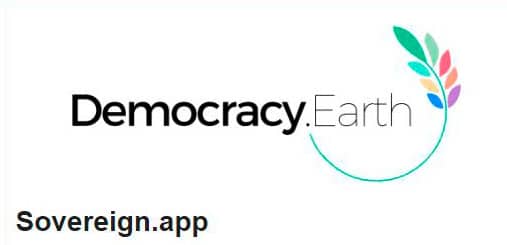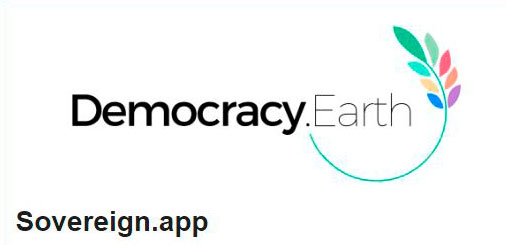Blockchain is much more than digital coins and transparent public audit in real time. It is technology that is slowly revolutionizing various areas of everyday life, and administrative and governance processes do not escape this innovation. This is the case of the use of blockchain for the exercise of voting with a new application “Sovereign“.
Developers behind Sovereign, an application that combines blockchain technology and the so-called Liquid Democracy, hope to inspire voters to re-enter the political realm.
The constant disappointments in the electoral field have led to unthinkable events such as the rise to power of characters such as Donald Trump. This type of facts causes an apathy impact on many citizens, leading to non-participation in electoral processes.
As society plunges into the future tied to new technological advances, there is no doubt that certain aspects of the democratic apparatus are under more scrutiny. In any case, the current changes are leading to lower electoral participation of recent generations, as well as a general dislike of the political situation.
This is even before reaching the concerns about unreliable candidates and the political machine that generates these individuals.
Of course, a better-quality candidate on both sides of the corridor and a greater commitment from citizenship would be very beneficial to the political sphere, but a California company believes there is another solution, and so they are betting on their proposal: The Sovereign application.
Sovereign seeks to rethink the ways a citizen can vote on the myriad of political goals in their state. By distributing a certain number of votes over time, the application allows users to spend their votes as tabs on certain mandates. If, for example, a voter leans heavily on a particular issue, he or she may spend more of their votes during this particular voting event.
Like our current democracy, there is no obligation to vote for articles that have little interest for voters, but the application also promotes the transfer of votes among users. Starting from Liquid Democracy, the platform offers users the option of voting directly on topics or passing their vote to a delegate. This delegate, however, can be a friend, colleague or politician. Around this, users can also discuss and discuss issues for a vote as well as vote as part of an organization or country created by the application.

Through this model, Sovereign attempts to approach 100 percent voter turnout on all matters eligible to vote.
With voters allowed to express intensity for in a referendum vote, such as the Brexit vote in the UK, democracy can be improved. A simple yes / no vote with one side winning a victory close to 50 percent is not really a clear absolute victory; vital economic and political decisions should not be made about such votes.
The biggest benefit of Sovereign comes from the limited capacity of manipulation of the voters because the chain of blocks is incorruptible. No one can modify or subvert how votes are stored, and that is vital for democracy.
The trend will take its rhythm and time to be understood and adopted, however once countries begin to adopt blockchain technology for these purposes, we will almost certainly see how we change the way we think about elections and our power as voters.




